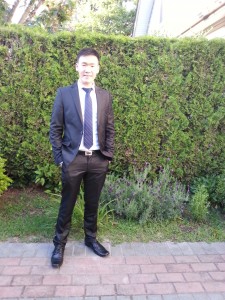Background
I am currently a teacher candidate at the University of British Columbia (UBC), enrolled in International Baccalaureate Diploma Program (IBDP) Cohort and Mathematics Cohort, with mathematics as my teachable. I graduated from UBC with the bachelor of science degree major in mathematics. Throughout my undergraduate studies, I have been exposed to quite a few honours math and the applied math courses, implying the exposure to mathematical rigour, proof, theory, algorithm, and to programming, statistics and data analysis. I have successfully completed the highly mathematically intense Society of Actuary (SOA) Exam P, Exam FM, and Exam MFE, that proves my solid math ability and allows me to have a broad insight of application of mathematics. Currently, I am the teaching assistant at UBC; I have been assisting the teaching of undergraduate courses including STAT 200 – Elementary Statistics for Applications, STAT 241/251 – Elementary Statistics, and MATH/STAT 302 – Introduction to Probability.
Teaching Philosophy
Learning is a tremendously complicated process for human beings toward obtaining knowledge and skills. I believe the two most important parts for successful learning are the clear understanding of relevant knowledge and the ability to think independently. Therefore, my main goals as an educator in the future will be constructing the most efficient delivery of knowledge and inspiring independent and critical thinking.
The efficient delivery of knowledge is always easier said than done. It not only requires proficiency on the field to be taught but also an organized way to break down the entire map down to small pieces of pictures. The year that I spent in A Plus helped me develop the ability to organize the concepts and deliver them. For instance, whenever I start to teach a new topic, I found it useful to draw some connection with relevant concepts that students have known already, then emphasize on the main difference between the new and the old ones. This can confirm students’ thorough understanding of basic topics and also open up their channels of connecting concepts. This teaching method that I developed from A Plus has been leading me toward the destination as an effective educator. The honours math courses that I took also helped me to break down all the tasks into pieces and solve them one by one. Still, the way we organize and deliver our teaching materials needs to be upgraded constantly.
On the other hand, it is important to lead students to realize that they can learn through questioning, analyzing, and discussing, besides just receiving information from the teacher. Toward achieving this goal, motivating questions are the keys for the locked doors. I understand it is crucial to know how questions should be asked. For example, I would not try to demolish students’ confidence and relatively weak first-stage understanding by asking high-level or tricky questions in the very beginning; making sure they can apply their knowledge, derive further information or discussion is more important than finding out what else they do not know. I try to build up their confidence first, with stronger confidence that comes with interest, students will then be willing to explore what they do not know on their own. This generates powerful active learning that students need to have for this live-and-learn world.
